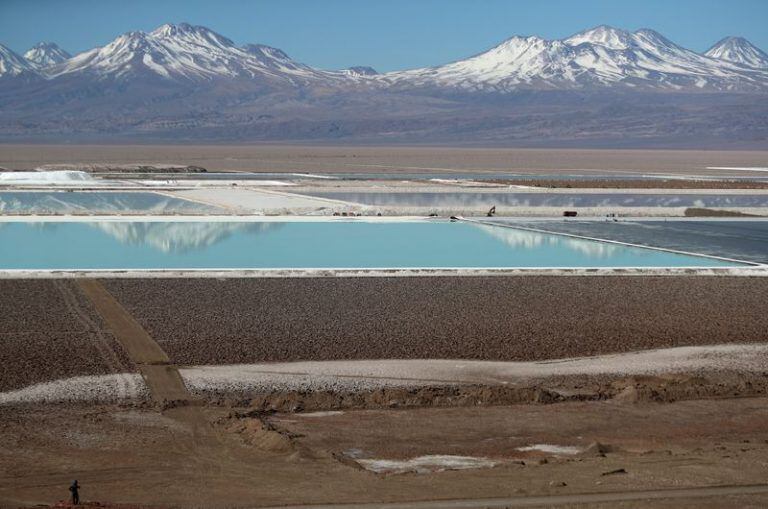
The leftist government gabriel boricwhich seeks resources for its ambitious social programs in Chilioutlined a new mining policy that arouses special interest in the future of the lithiumalso called white gold, vital in the transition towards clean energy.
Chile thus increased taxes on the exploitation of copper, a metal of which it is the world’s largest producer, and proposes that the State have a leading role in the extraction of lithium, of which it is the second global producer.
What does the new mining policy provide?
In late April, Boric announced the National Lithium Strategy as the world seeks to move away from fossil fuels in the face of the climate crisis. This metal is key to the manufacture of electric vehicle batteries.
The relevant feature of the new policy “It is a more important role for the State”Juan Carlos Guajardo, executive director of the Plusmining consultancy, told AFP. The plan foresees a public-private alliance, with the State present throughout the production chain through a future National Lithium Company.
Currently two private companies, Chilean SQM and US Albemarle, extract ore from the Atacama salt flat, 1,700 km north of Santiago, under concessions that expire in 2030 and 2043, respectively. The government has not yet defined the terms of the upcoming contracts.
However, they are “Many international companies and investors have already expressed their interest in working with us”Boric said.
Why the interest in lithium?
Given the voracious demand, the price of this metal skyrocketed 400% during 2022. Chilean exports went from 1,233 million dollars in 2021 to 8,093 million in 2022, according to the Central Bank.
Last year lithium represented a 3% of GDP and was the second product that contributed the most to the economy after copper derivatives. Although it has strayed from the path of nationalization, the government’s new strategy is received with caution.
“This change of orientation has a strong ideological conception and that unfortunately has affected the pragmatism that some decisions in this matter require”comments the analyst Guajardo.
Chile, which under the dictatorship of Augusto Pinochet declared lithium “nuclear interest” Due to its use in the manufacture of hydrogen bombs, it produces 34% of the “white gold” in the world, barely surpassed by Australia. It is estimated that he has a 36% of the reserves.
In the middle of the commercial race for lithium, an industry that demands millions of investments, Chile could have opted for “much faster and faster roads” than those of the State, adds the expert.
And the copper?
Boric obtained the approval of an increase in the specific tax on large-scale mining, which seeks to raise almost 1.5 billion dollars. The government resorted to the red metal to finance social programs, after the failure in Congress of its plan for the rich to pay more taxes.
Since the nationalization of the large copper mines in 1971, the extraction and export of this metal has been considered the “chile salary”. With an annual production of 5.3 million tons in 2022, equivalent to the 26% of global supply, Chile is the world’s leading producer of the red metal.
The state-owned Codelco and giants such as the Anglo-Australian BHP and the British Anglo American operate in the country. Copper production represents about 13% of GDP.
What does the private sector say?
According to the government, from now on large mining companies (that extract more than 50,000 tons of minerals per year) will have an effective tax burden of 40.1%. But the private sector calculates that it will be 44.7%, higher than that of direct competitors such as Canada, Peru, Australia and the United States.
“The obvious effect is the loss of competitiveness”Joaquín Villarino, president of the Mining Council, which brings together the large firms in the sector, told AFP.
Villarino wonders if perhaps “This will have a serious effect on the materialization of investments, in that the country has a portfolio of projects that exceeds 50,000 million dollars.”
Source: AFP
Source: Gestion
Ricardo is a renowned author and journalist, known for his exceptional writing on top-news stories. He currently works as a writer at the 247 News Agency, where he is known for his ability to deliver breaking news and insightful analysis on the most pressing issues of the day.












